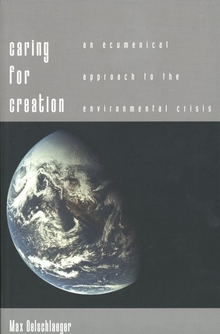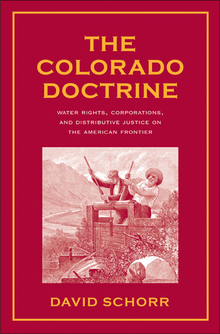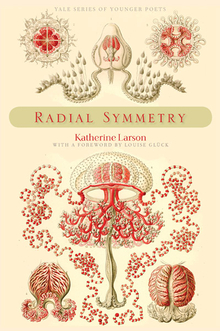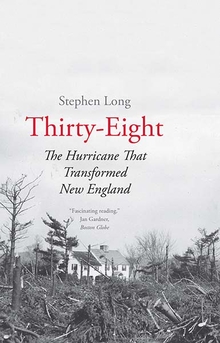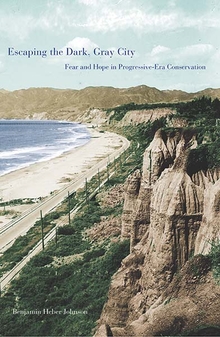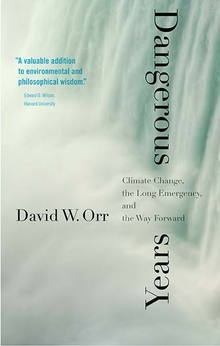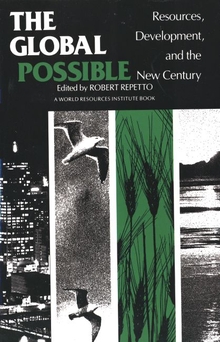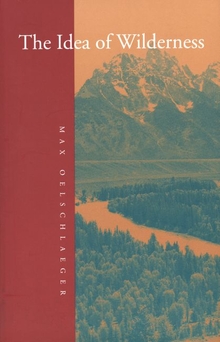Caring for Creation
WARNING
You are viewing an older version of the Yalebooks website. Please visit out new website with more updated information and a better user experience: https://www.yalebooks.com
An Ecumenical Approach to the Environmental Crisis
Max Oelschlaeger
Examining a broad range of Western religious traditions—from conservative Christianity and orthodox Judaism to Goddess feminism and nature religion—Max Oelschlaeger provides a sociolinguistic analysis of their creation stories and finds environmentally positive aspects in each of them. He asserts that religious discourse in the public arena can offer a way for such environmental issues as biodiversity, pollution, and population to be addressed outside the realm of special-interest politics. And he urges local churches to make "caring for creation" a theme for worship in their services; the majority of Americans, says Oelschlaeger, will discover an environmental ethic only through their religious faith.
"This excellent book emphasizes a theme with an intensity not met elsewhere—that religion is necessary if we are to solve the environmental crisis politically. Oelschlaeger's effort to bring all religions into his 'caring for creation' orientation, if sometimes something of a tour de force, also reveals a deep respect for nature pervasive in religious faith and its tremendous potential for conservation."—Holmes Rolston III, Colorado State University
"Oelschlaeger provides us with a stunning new approach to the resolution to ecocrisis. Caring for Creation presents a powerful argument that only the churches, as the repository of moral values that lie outside the economic paradigm, can provide the social/political leadership and power to move our society to ecological sustainability. In making his case, Oelschlaeger summarizes and critiques the contemporary literature and cutting-edge issues in such diverse areas as environmental ethics, ecology, utilitarian individualism, the economic interpretation of environmentalism, and revitalizing citizen democracy. This book is required reading for ecophilosophers, scientists, environmentalists, politicians, sociologists, economists, and political scientists, as well as clergy and laypersons—in short, for anyone seriously interested in a solution to the environmental crisis."—George Sessions, Sierra College
"This book should do much to cement the alliance between the religious community, as it slowly but steadily awakens to the environmental crisis, and the environmental one. They need each other, and the Earth needs both. Oelschlaeger shows with unique clarity and force the contribution religious people can and must make. This should function both as encouragement and challenge to those in the religious community concerned that this contribution be made."—John B. Cobb, Jr., Claremont Graduate School
"Oelschlaeger provides fresh, valuable thoughts on how to inspire a mass ecological movement."—Publishers Weekly
"What a pleasure it is to recommend this excellent, thought-provoking, and truly interdisciplinary book to those who are deeply concerned about human effects on the biosphere. . . . There is much wisdom in this thoroughly non-offensive book, and its author is a friend to us all."—Dale a. Russell, Global Biodiversity
"An important book; highly recommended for all readers and libraries."—Choice
"Like a cool breeze on a hot day, Max Oelschlaeger's book snaps one to attention. . . . A critically important work deserving a wide reading. . . . Oelschlaeger's synthesis of a wide range of literary-critical, philosophical, religious and ecological materials makes his book gripping and important. It indicts today's easy dismissal of religion by its cultural despisers, even as it charges religious communities to take seriously their eco-responsibilities."—William C. French, Christian Century
"A remarkably bold and refreshing work. . . . It should be required reading by all church leaders, theologians, and environmentalists today."—John F. Haught, Cross Currents
"Particularly fascinating is the manner in which the author treats the language of religious discourse. This book is a masterful synthesis of the possible Judeo-Christian role and contribution to an earth ethic, contextualized within a postmodern, socio-linguistic framework that may make such religious perspectives palatable to skeptical secularists."—Richard M. Clugston, Earth Ethics
"An important book for those concerned with the relationship between religious faith, church politics and the environment."—Theological Review
"This is truly an interdisciplinary book- and herein lies the justification of the term 'ecumenical' in the title-that draws together literary-critical, philosophical, religious, and ecological materials and appeals, to ecophilosophers, scientists, environmentalists, politicians, sociologists, economists, political scientists, clergy and laypersons."—Greek Orthodox Theological Review
"By introducing us to the important connection between religion and environmental ethics, the books serves a useful purpose. And by emphasizing the historically influential role of religion in U.S. reform movements, and urging the application of this moral energy to the environmental cause, it will help open up more effective relations between religious and environmental groups."—Sierra
"The best academic book in its field. With readable prose it applies socio-linguistic and ethical analyses and systematically documents the principal teachings on religion and environment."—Whole Earth Review
Publication Date: February 21, 1996

